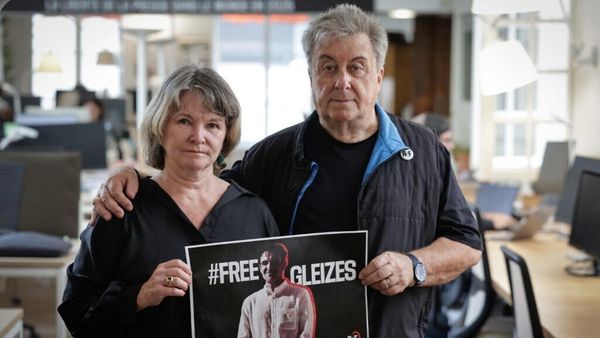
MPs are expected to get a free vote on decriminalising abortion when a Labour backbencher lays an amendment that would end the prosecution of women who terminate pregnancies after the 24-week limit.
Diana Johnson is expected to lay an amendment to the Criminal Justice Act next month that would stop the possibility of women being jailed for going ahead with abortions after the time limit.
MPs generally get free votes on abortion because it is considered a matter of conscience, meaning the parties will allow parliamentarians to make a personal choice about how they vote.
Johnson said she was “hopeful” the amendment would pass because “in 2019-20 we did this for Northern Ireland and got it decriminalised”.
“I would find it very odd if parliament decided not to do this for England and Wales, as we’ve already done it and the sky has not fallen in. Other countries have done it – Australia, New Zealand, Canada and the Republic of Ireland – so it’s not the terrible thing that some people seem to be making out it is,” she said.
“The other thing that may sway people is the number of investigations, this upsurge now in women being brought before the courts, the number of investigations police forces are undertaking and the fact that abortion providers are saying they’ve been asked 50 times in the last 18 months for medical records of women.
“Women who have gone through stillbirths are finding themselves under investigation. And this very small group of women who do procure their own abortion late on are often in the most awful circumstances– women who are the victims of trafficking or are very young or in an abusive relationship. I’m not sure we’d think sending women through the courts is the way to deal with this.”
Polling of MPs for the Times found there appeared to be a majority in favour of decriminalising abortion, with 55% against women being prosecuted, 23% in favour and the rest saying they do not know.
Abortions in England must be approved by two doctors and take place within the first 24 weeks of pregnancy. Otherwise, it is illegal to deliberately end a pregnancy and, under the 1861 Offences Against the Person Act, carries a maximum punishment of life imprisonment. Terminations after 10 weeks are carried out in a hospital or clinic.
About 100 women have been investigated over abortions since 2019. There was an outcry in 2023 over the case of Carla Foster, a mother of three, who was jailed for terminating her pregnancy after the legal time limit during lockdown.
She was originally sentenced to 28 months, reduced on appeal to a suspended 14-month sentence, with the court of appeal judge saying she needed “compassion, not punishment”. She had admitted illegally procuring her own abortion when she was between 32 and 34 weeks pregnant.
Bethany Cox, from Teesside, was cleared of the same charge but three more women accused of illegal abortions are due to appear in court this year.
Since 2022, at least six women have been taken to court and dozens have been investigated for allegedly ending their pregnancies outside the legal requirements covering abortion. In the previous 20 years, just three women were prosecuted.
On Friday night, the health secretary, Victoria Atkins, indicated that she would back decriminalisation. In an interview with the Telegraph, she said her voting record – she has previously supported decriminalisation and backed buffer zones for abortion clinics – “speaks for itself”.
Last month, the Royal College of Obstetricians and Gynaecologists (RCOG) said doctors and other healthcare staff should not report suspected illegal abortions to the police as prosecutions are never in the public interest.
In an intervention on the debate in January, Dr Ranee Thakar, the president of the professional body, said “outdated and antiquated” abortion laws meant women were vulnerable to criminal investigation.
She said professionals were subject to “unacceptable and unwarranted scrutiny”, and the RCOG said that if health staff disclosed confidential patient information without consent they could face proceedings by professional bodies.







